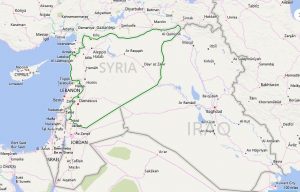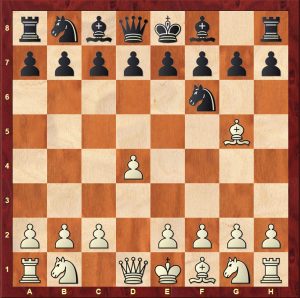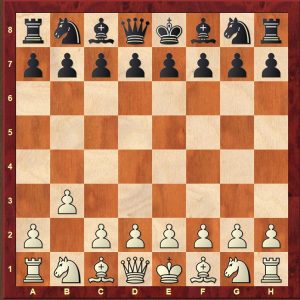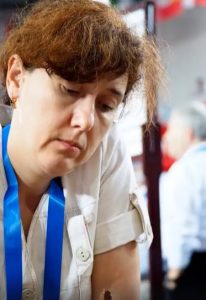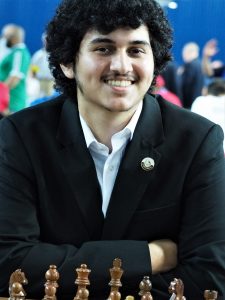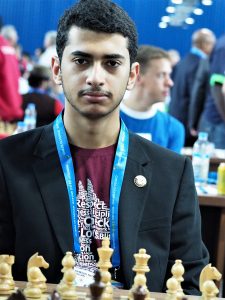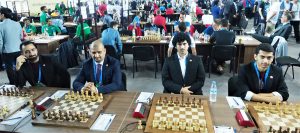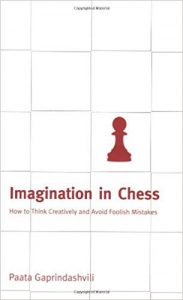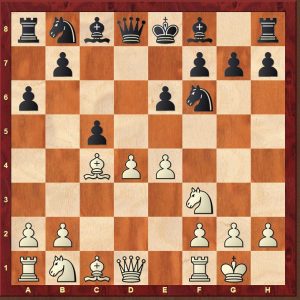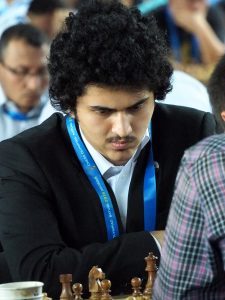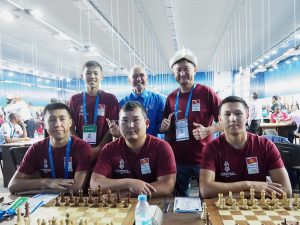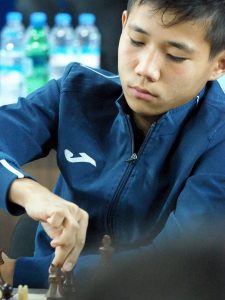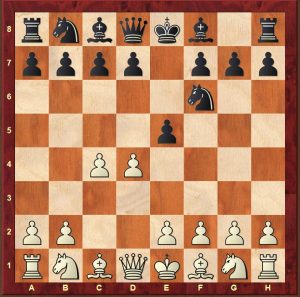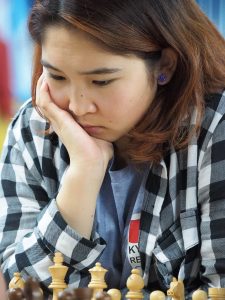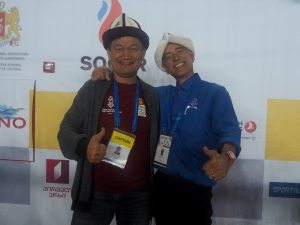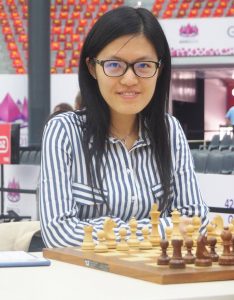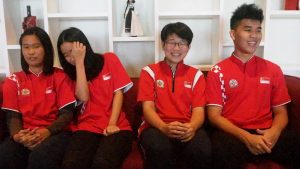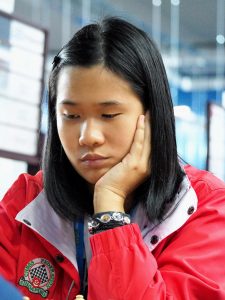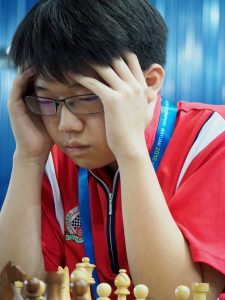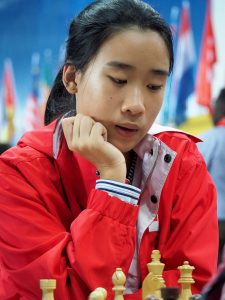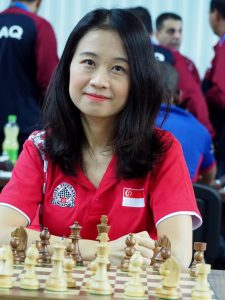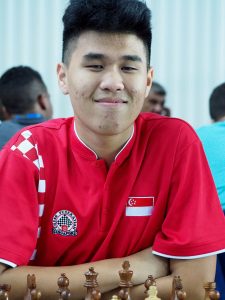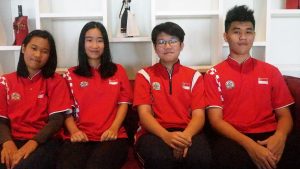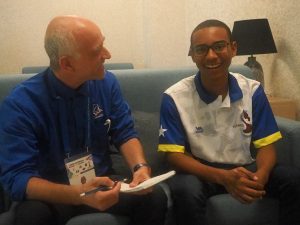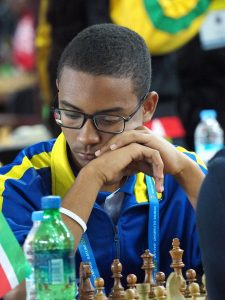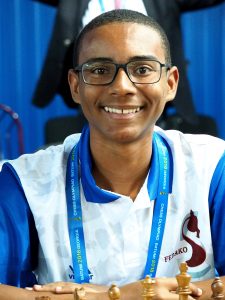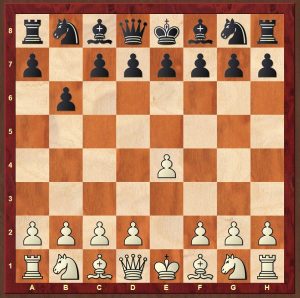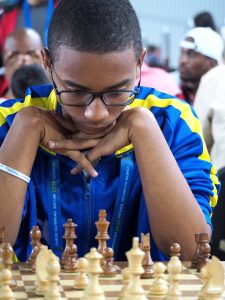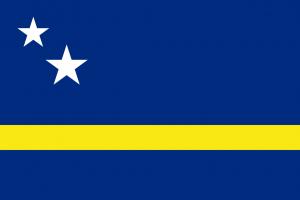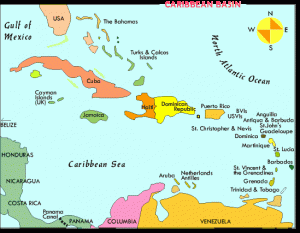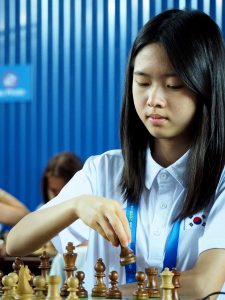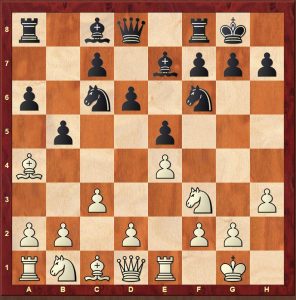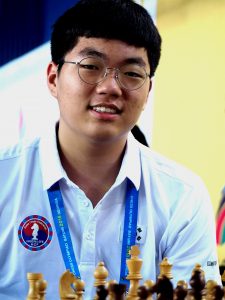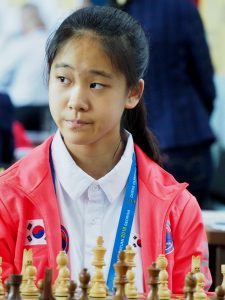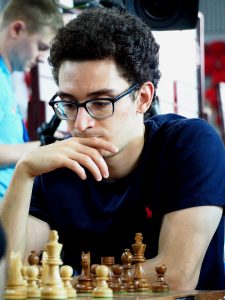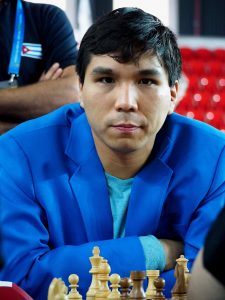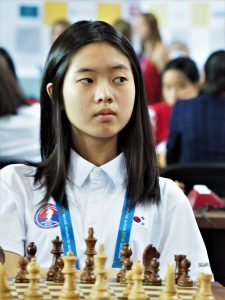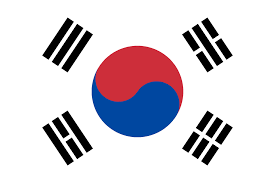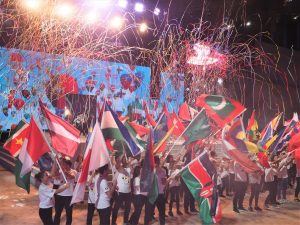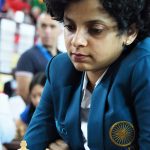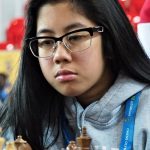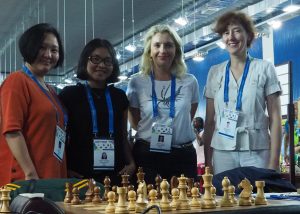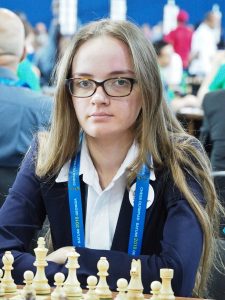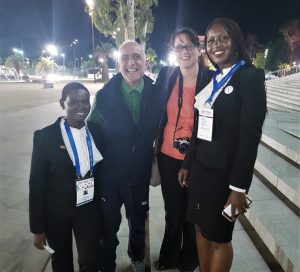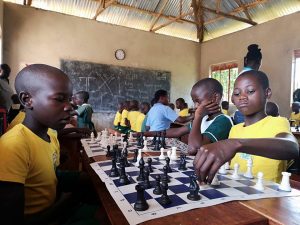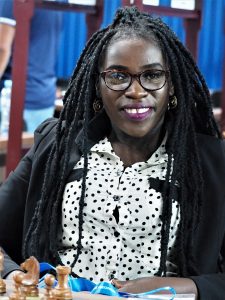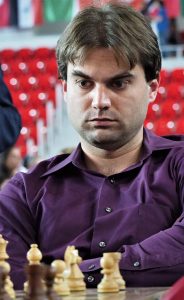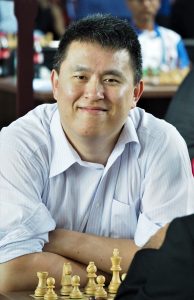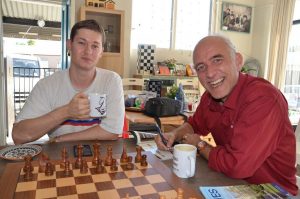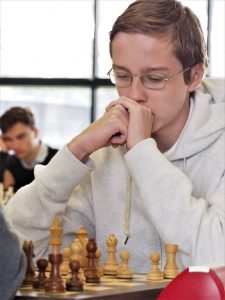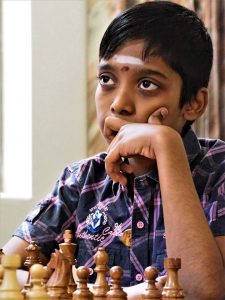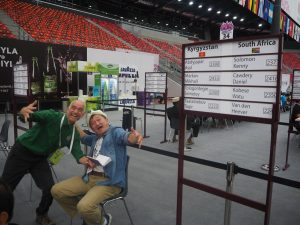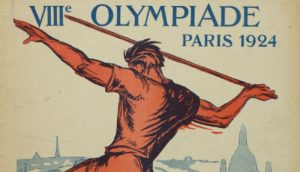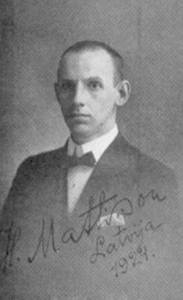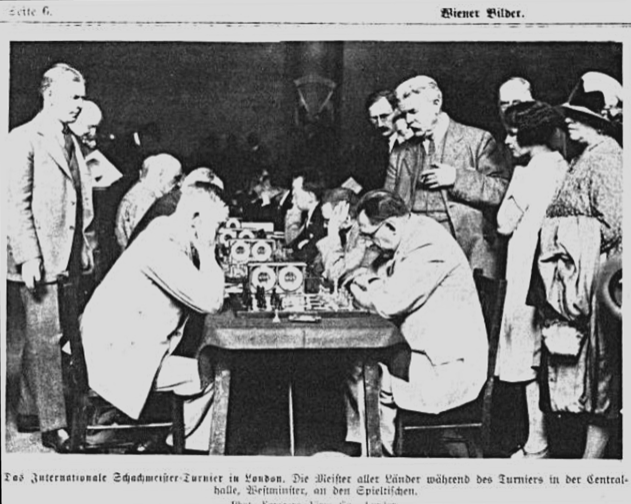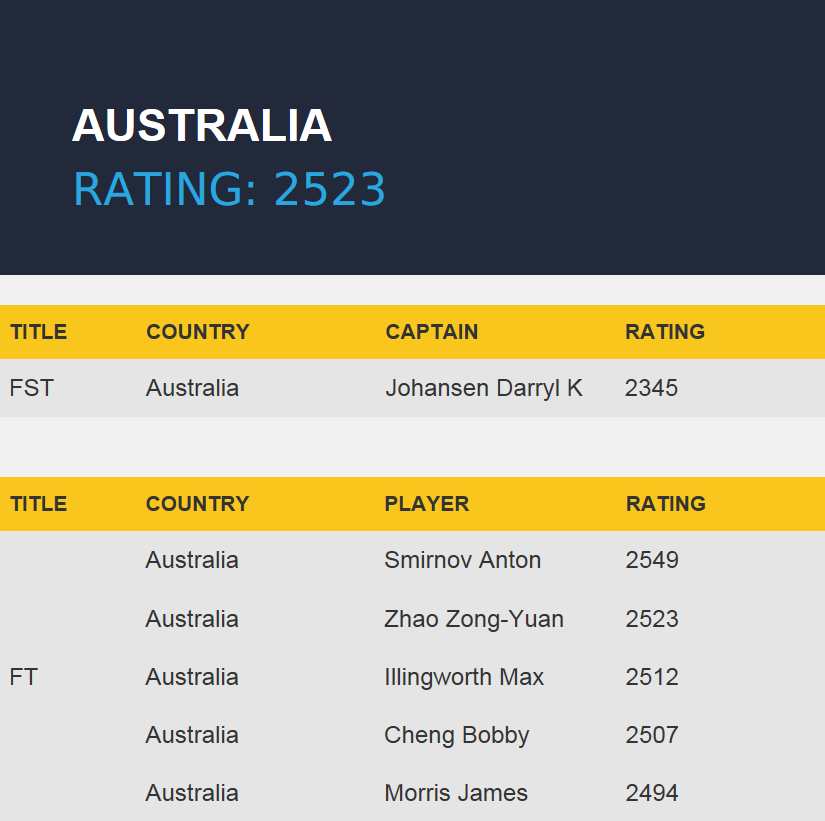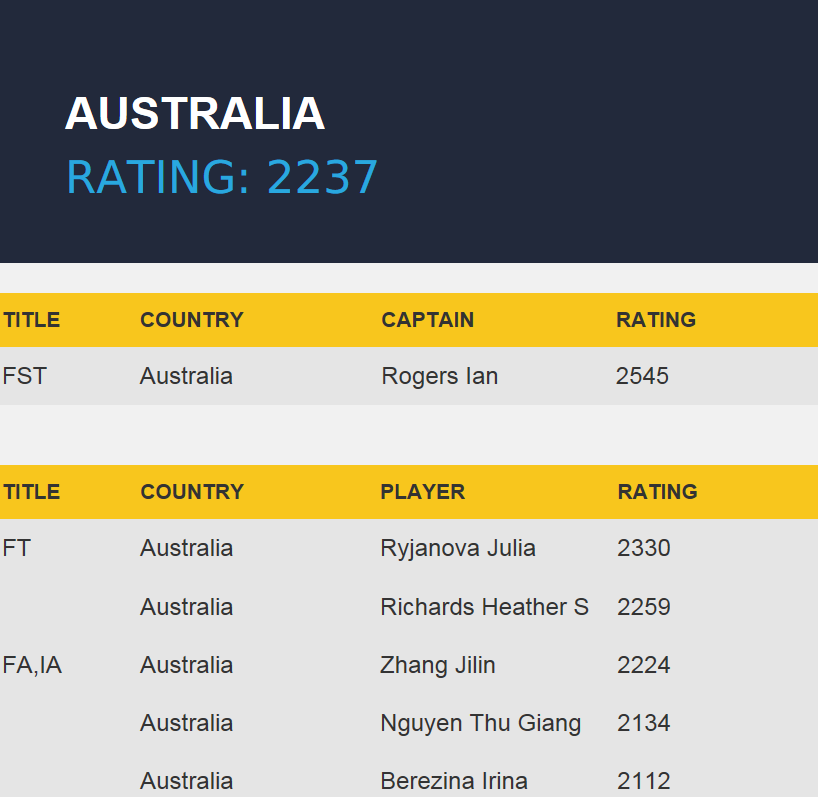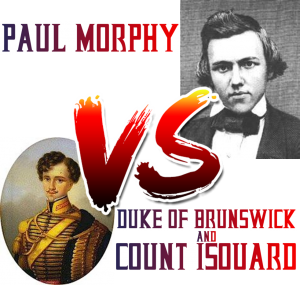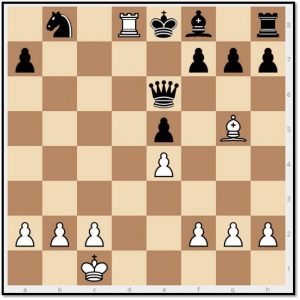We all know about Syria, the country that has been in the news for the last few years. Unfortunately, not because it has been going so well, but rather because war has destroyed normality. Within the chess community we find comradery and friendship, and an Olympiad creates a perfect opportunity to find out more about the people from Syria and how chess is an integral part of their world.
Our interview comes a day after the round against Jordan, a country bordering with Syria and amazingly, on that exact same day, the border between Jordan and Syria is re-opened!
Click on the board below of David’s annotation of Malek’s game against his opponent from Jordan. In this game he shows his talents in both positional as well as tactical play!
Today we have a chat with the captain of the open team, Akeel Mahmoud about the two junior players, 18-year-old Malek Koniahl in the Open team and 17-year-old Fatema Murad who plays on board 1 for the Women’s team.
Akeel was a civil engineer from Aleppo before the war broke out and when he lost his job, he turned his office space into a place for students to come and learn chess. He was an active player himself when he was younger but had lost touch with the game while pursuing his career and family life. The war created space and time to reignite that passion and allowed him to pick up where he left it. Now a FIDE Trainer, Akeel has been coaching many students and assisting them with international tournaments, including Malek.
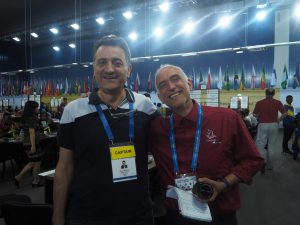
The Junior Chess League in Syria is growing, with many local tournaments. ‘We need to be able to play more internationally to really give these juniors an opportunity’ Akeel explains. Local chess tournaments and basic training are often free, with the sports ministry covering most of the costs.
Malek has had a pretty amazing track record; he started playing when he was 7 years old and very quickly became the U10 and then U12 champion. In 2017 he became the Syrian National Champion. Akeel became his coach early 2018. In March 2018, he played in the Iraq Open, a tournament with 15 GM’s and many International Masters, and Malek won the tournament. This was a huge achievement, which gained him around 110 elo points!
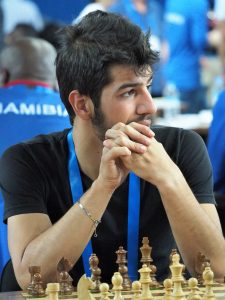
Fatema started as an 8-year-old in her home town up north and was the only girl playing chess. She comes from a relatively conservative township but found an accepting group in the chess community. A good example of this is the small township of Salamiah. The chess community is so strong and supportive, allowing for more freedom and a focus on education, that three of the five players from the Women’s team are from Salamiah.
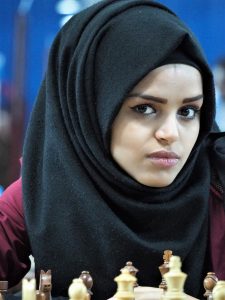
In and around the country chess clubs have reopened their doors; in Damascus alone, the capital of Syria, there are over 20 clubs. Clubs often play coaches small fees to the coaches, which in turn comes from the federation and the ministry of sport. When preparing and studying chess, things are also a little different in Syria. With services like paypal not usable, new DVD’s and updates are difficult to be purchased, therefore students are often learning from books and CD-roms.
Malek is both a positional and tactical player, but Akeel explains that he is trying to push him towards more positional play as he grows. Fatema is more a tactical player but can provide solid positional ideas. This would all work towards the dream of Malek to become a GM and chase a professional chess career. This is of course not going to be easy for someone from Syria, but clubs are helping this young prodigy to achieve his dreams.
